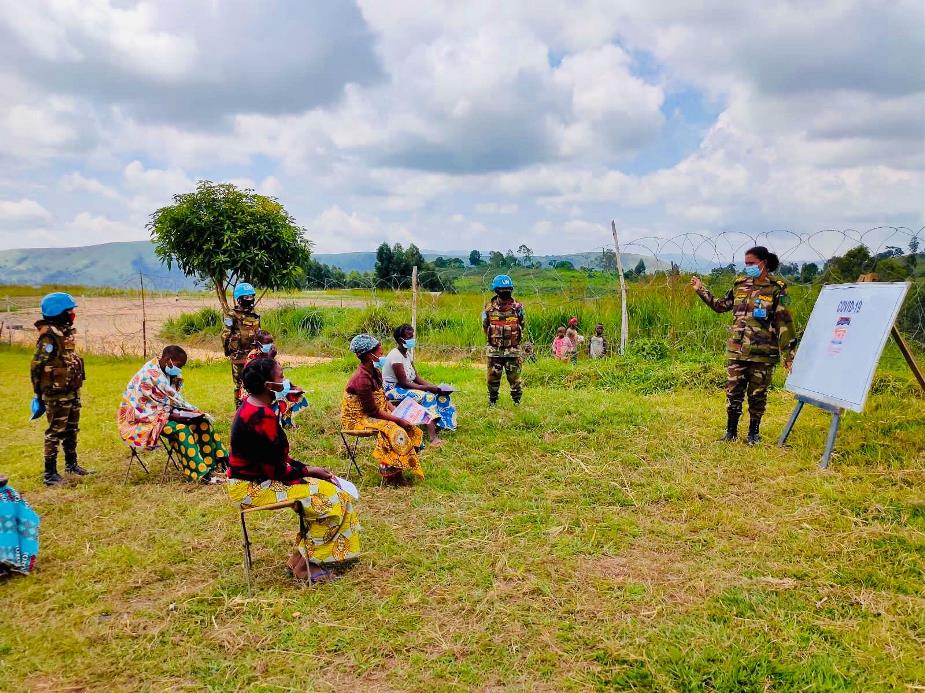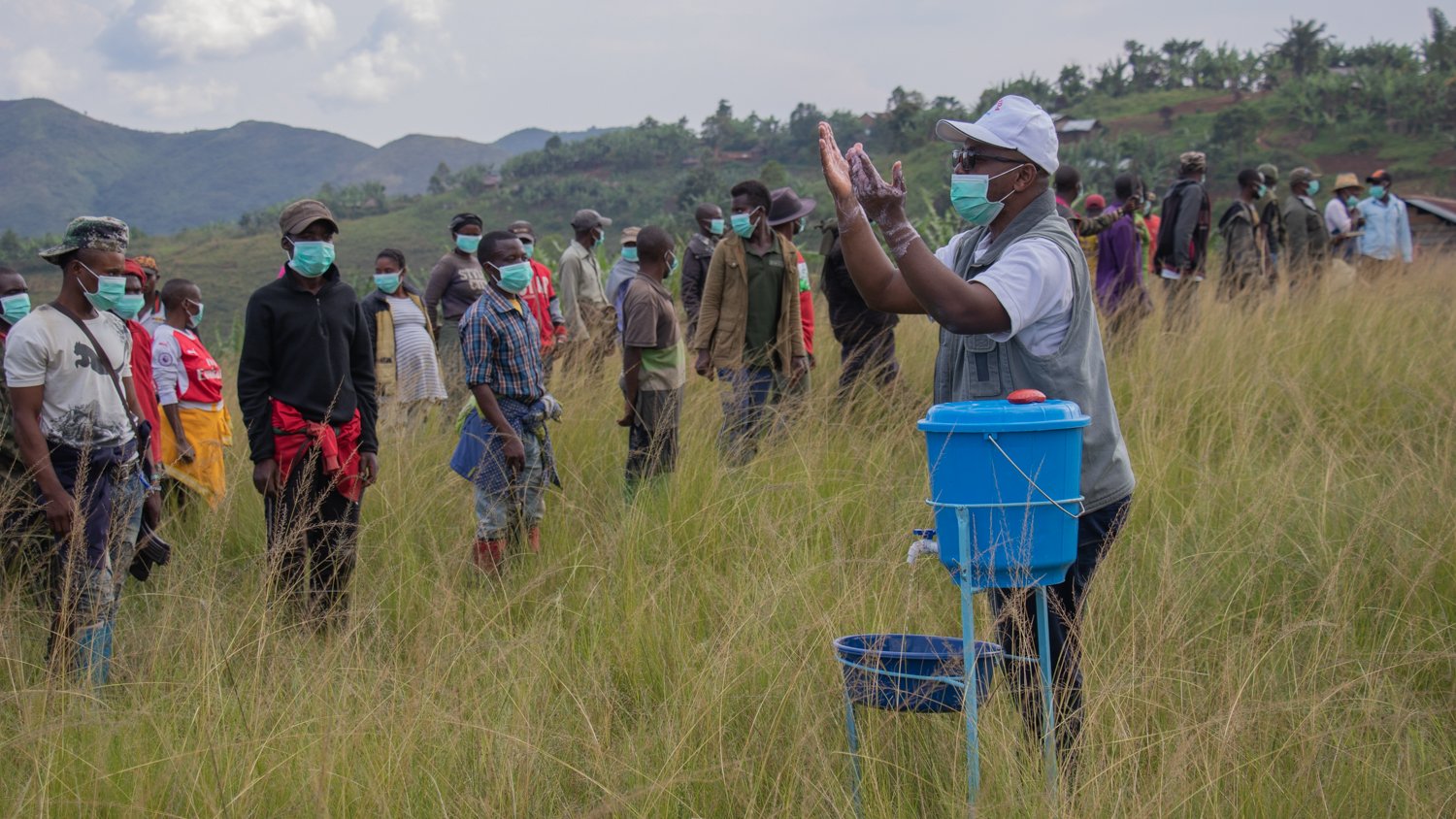The impact of the corona virus on UN peacekeeping at the field, state, and global level

Every day, the COVID-19 pandemic dominates the news. As of 25 May, there are 5.4 million confirmed cases worldwide, with over 340.000 deaths. Although we hear daily about the strengthening or relaxation of lockdown measures, less discussed is the fact that the pandemic also has major effects on international conflict management.
Indeed, because of the undermining effects of the corona virus, UN Secretary-General António Guterres called on 23 March for a ‘global ceasefire,’ pleading with all warring parties to lay down their arms and focus attention on fighting the COVID-19 pandemic. In his words, “the fury of the virus illustrates the folly of war.”
Due to the corona virus, the UN and its partners are facing major difficulties in their efforts to manage and resolve armed conflict. Mediators encounter problems with bringing parties around the table in a time of social distancing and humanitarian access is complicated by travel restrictions. Moreover, the spread of the coronavirus undermines the ability of UN peace operations to implement their mandate. While UN operations have had to deal with large public health emergencies before (such as, most recently, the Ebola virus outbreak in eastern Congo), the global scale of the crisis is unprecedented for UN peacekeeping too.
In this blog, we analyze the (potential) effects of the coronavirus on UN peacekeeping, making use of a number of recent blogs and reports from scholars and think tanks. We argue that peace operations are affected by the coronavirus on three levels: at the level of the operations themselves, at the level of the conflict context and, finally, at the structural level.
No troop rotations, helping the host state and social distancing
First, apart from concerns that peacekeepers themselves may fall ill, the UN is particularly concerned about the potential that the peace operations will become “vectors of contagion.” This is why, on 6 March, the UN ordered a halt to all troop and staff rotations until at least 30 June, meaning that some contingents need to stay in-country for an extra three months. This may have a substantial effect on morale and undercut the effectiveness of operations. Another problematic development is the proliferation of travel restrictions, which impact the deployment of new troops and other personnel. In UNISFA, for example, there have been delays in deploying new UN personnel to the Sudanese/South-Sudanese border.
Like so many of us, peacekeepers have had to adjust their daily habits to mitigate the spread of the corona virus. The UN’s operations have established several hygiene measures to prevent the spread of disease, including systematic handwashing, temperature checks at the entrances of UN bases, social distancing and ordering staff to work from home where possible.
But the UN also plays a crucial role in supporting the host government in the delivery of public information and bolstering medical capacity. Peace operations have contributed medical resources like personal protective equipment (PPE) and respirators to bolster host states’ public health systems. They have also made available some of their medical facilities and established quarantine zones. Importantly, the UN’s efforts also include awareness-raising in affected countries. In the DRC, for example, MONUSCO collaborated with UNICEF and the Congolese National Radio to broadcast relevant information to over 22 million people. Such awareness is key in countries where there is low trust in public authorities and the state has only limited reach.
However, this increased activity also means that UN peace operations have had to shift some of their limited resources to these public health efforts, reducing their capability to fulfil other core tasks such as undertaking patrols, protecting civilians and pursuing quick impact projects to bolster local governance. Although these tasks do continue to some degree, some peacekeeping activities – such as military patrols – are predicated on frequent movement and social distancing measures and may thus strongly affect the capability of peacekeepers to implement their mandate.
As such, the crisis highlights how important it is for UN operations to coordinate and collaborate with the UN Country Team, NGO’s and the host country. Tackling the pandemic through a joint effort is the only way to ensure that UN operations can continue to perform their core activities even when they are struggling financially.
More or less conflict?
The second level on which the COVID-19 pandemic may affect peacekeeping is by reducing or increasing the prevalence of conflict in mission areas. On the one hand, the virus may present opportunities for peacemaking, as parties recognize the priority of fighting the virus instead of each other and cooperate with erstwhile rivals.
On the other hand, the crisis increases conflict risk factors, with economic crisis and rising unemployment undermining the political stability of already fragile countries. Moreover, as noted by the International Crisis Group, some parties may see the disorder and unrest created by the corona virus as an opportunity to step up their military operations or reinforce repression now that the opposition is hamstrung.
There is not much evidence that the pandemic has had strong effects in either direction. In this context, it is relevant to note that the large majority of UN peacekeepers are deployed in sub-Saharan Africa, which is relatively unaffected by the virus. Many countries have imposed various forms of lockdowns – but the largest outbreak so far, in South Africa, has only around 22.000 confirmed cases and about a 220 deaths.
Of course, it is more than possible that the virus is far more active in Africa than we assume, and that a lack of testing facilities and access to health care is driving the official numbers down. If the virus does spread though, it could spell disaster. The capacity of sub-Saharan Africa to handle the virus is limited, with “weak infrastructure and war-ruined health networks,” combined with low trust in public authorities, and overcrowded refugee camps and slums.

Cooperating against the coronavirus, or fighting over the cure?
The coronavirus is also affecting the structural environment in which UN peace operations operate. Even before the start of the crisis, UN Peacekeeping, and the organization as a whole, has been struggling financially. In early May, the fifth Committee of the General Assembly received its biannual briefing on the UN’s finances. The fact of the matter is that there is an important liquidity challenge and unless member states fulfill their pledges, the operations will not be able to perform as they are mandated to do.
The global recession that will follow the public health crisis will only exacerbate these struggles. The IMF has predicted that the world economy will contract by about 3 per cent in the year to come. This will affect countries’ national budgets, which are likely to prioritize public health and reviving the economy over peace operations in conflicts far away. Restricted defense budgets may in turn lead to a reduced willingness to contribute staff and troops to UN operations – although we should not forget that for some countries, participating in UN peace operations is an essential method of earning foreign currency through the UN’s remuneration system.
In the long term, the institution of UN peacekeeping will be shaped by how the world comes out of this crisis. It has always fared well in situations of strong multilateralism and a well-funded UN. It is possible that the international community acknowledges that, as former UN Secretary-General Kofi Annan used to say, “problems without a passport” require global solutions. States and international organizations could come together to set up improved structures to fight future pandemics and show solidarity with those states hardest hit by COVID-19.
However, recent news does not bode well for hopes of increased multilateralism. So far, the crisis has mostly led to an intensification of major power rivalry and unilateralism, which were already on the rise before the COVID-19 outbreak. States scramble to ensure the safety of their populations – at the expense of others if need be. Others blame globalization for the rapid spread of the corona virus, and may retreat from multilateralism or try to become more self-sufficient in the future. Together, these developments could lead to a further weakening of multilateralism and a decreased willingness of states to cooperate on a number of matters, including the resolution of deadly conflict. Without such willingness, there can be no effective UN peacekeeping.
In his call for a global ceasefire, Secretary-General Guterres argued that this should be the UN’s moment to shine. Coordinating cooperation and fostering solidarity is the very “raison d’être of the United Nations itself.” But only time can tell whether the future will produce more conflict and weaken multilateralism or rather bolster the willingness to cooperate to contain the spread of future diseases.
Tom Buitelaar, David den Dunnen & Diego Salama
Leiden University & The Hague University of Applied Sciences